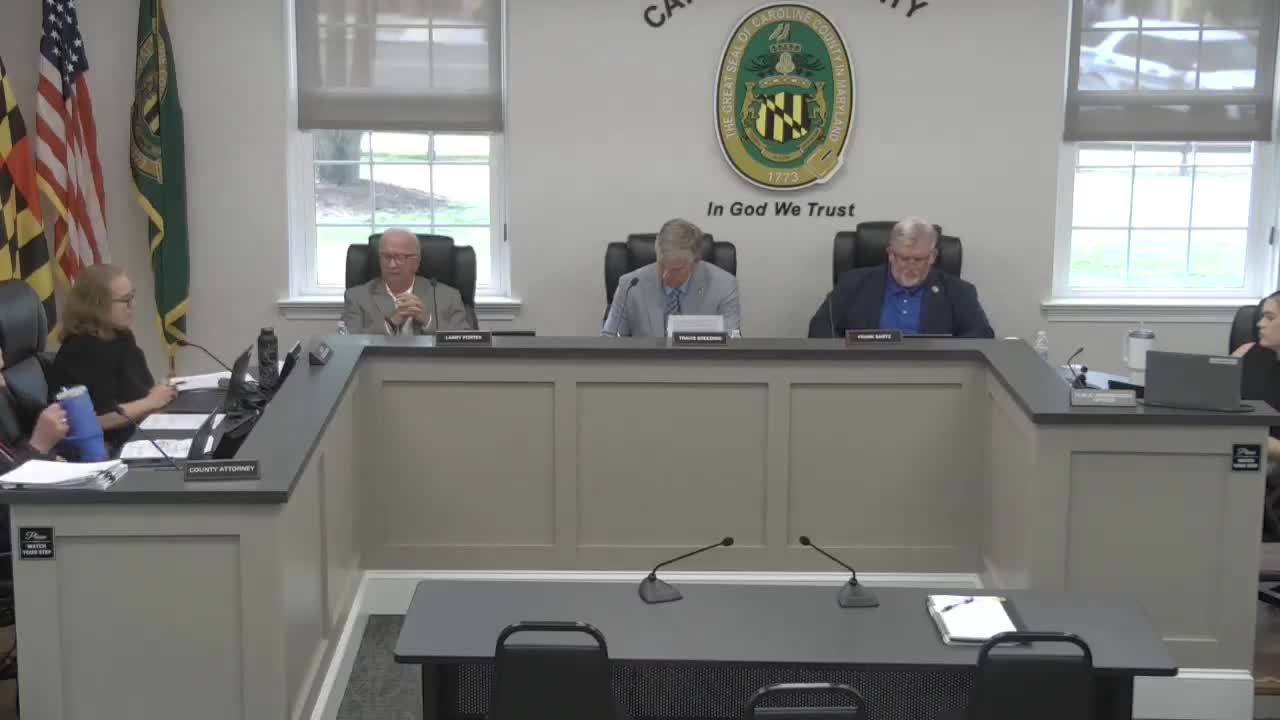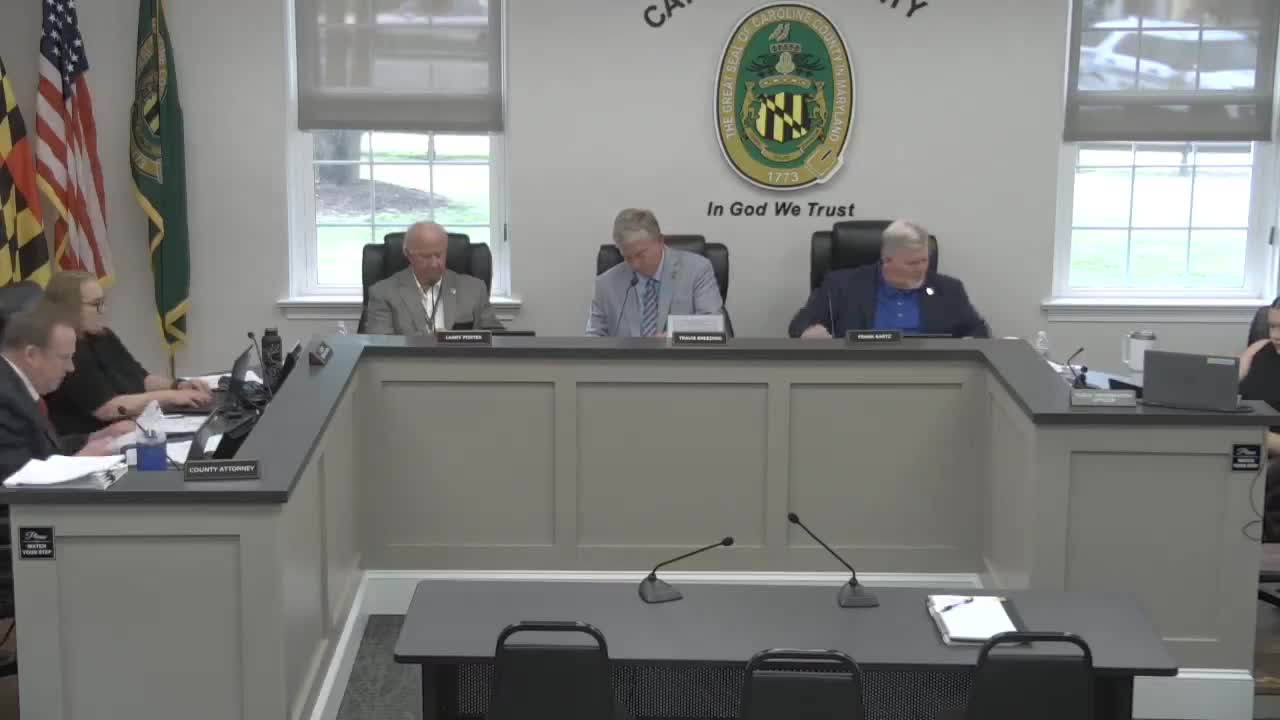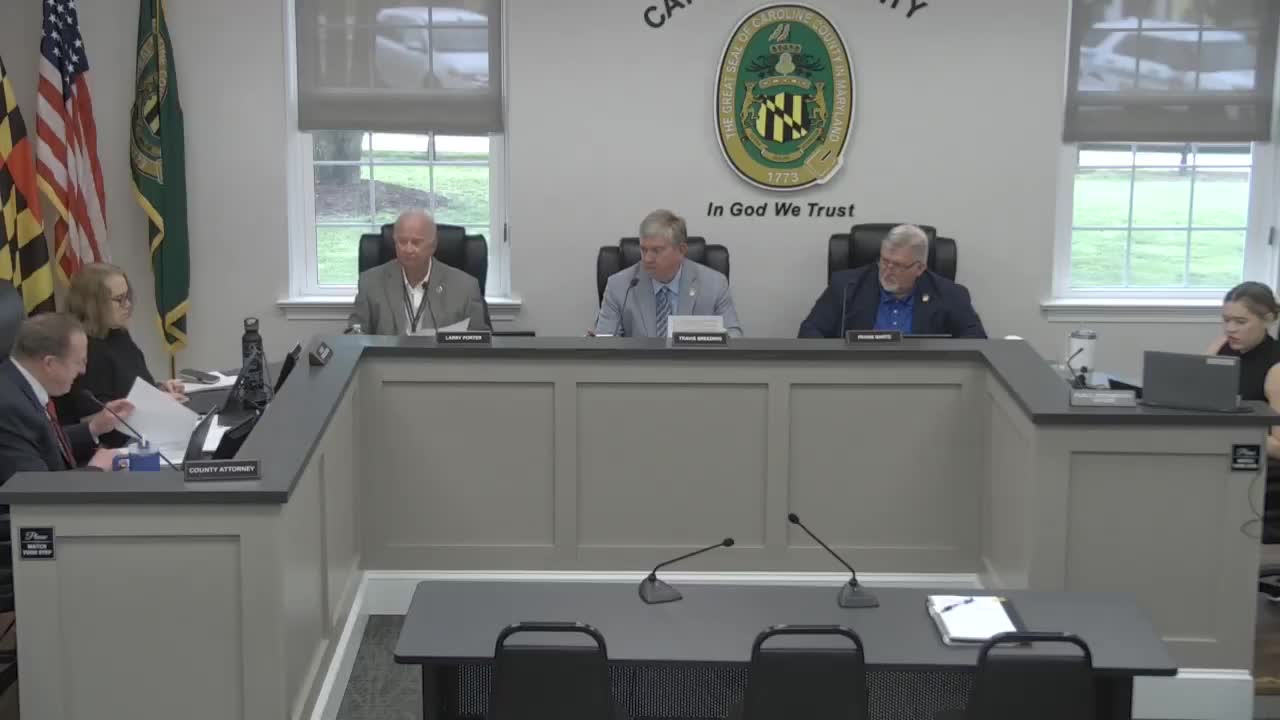Article not found
This article is no longer available. But don't worry—we've gathered other articles that discuss the same topic.

Caroline County staff brief commissioners on solar projects, burial site and possible change to 2,000-acre cap

Caroline County enacts planning commission term-limit repeal; approves $1.05 million excavation contract

